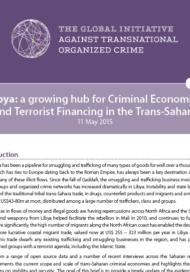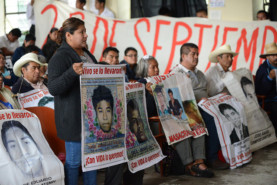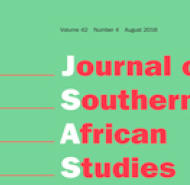Posted on 06 Apr 2017
Large-scale illicit economies and organized crime have received increasing attention from governments and international organizations since the end of the Cold War. The end of the Cold War brought a permissive strategic environment that allowed many states to focus on a broader menu of interests in their foreign policy agendas, such as the fight against drug trafficking and production. The post-Cold War era also exposed the fragility and institutional underdevelopment of many of these states, a deficiency perhaps exacerbated by globalization. At the same time, criminal and belligerent actors with significant power previously obscured by the shadows of Cold War politics were spotlighted by the international community, especially when their activities were associated with intense violence or corruption.
The focus on organized crime, illicit economies, and the multiple threats they pose to states and societies only intensified after 9-11 when it became obvious that belligerent groups, such as the Taliban in Afghanistan and Pakistan as well as the Islamic State (IS) in Iraq and Syria, derive multiple benefits—including extensive financial profits—from participating in illicit economies such as the drug trade. In addition to expanding the resources of terrorist and belligerent groups, the persistence and growth of illegal economies have complicated postconflict stabilization and reconstruction efforts in countries that have emerged from civil wars, such as Cambodia and Haiti. Increasingly, the United Nations Security Council too has highlighted organized crime as an issue requiring the coordinated focus of various United Nations bodies and of the Secretary General.
The evolved standard understanding is that illicit economies and organized crime fuel conflict, increase the fragility of states, and undermine democratization. Thus, the reduction of conflict, the buildup of state resilience, and the promotion of democratization—especially in countries in the process of regime transition or postconflict transition—require the suppression of illicit economies and organized crime. This monograph shows the limitations of this conventional wisdom in both its analytical components and its prescriptions, and highlights how a sharpened analysis can give rise to policies with better prospects for reducing the role of illicit economies and crime in post-conflict and regime-change situations.
Drawing from fieldwork in Afghanistan and Myanmar, detailed in the accompanying two case studies, this capstone paper highlights the key findings regarding the dynamics and interrelationships of illicit economies and organized crime in conflict, post-conflict-transitions, and regime transitions and lays out overarching policy implications that carry beyond the two particular cases.
Photo by José Martín Ramírez C on Unsplash



